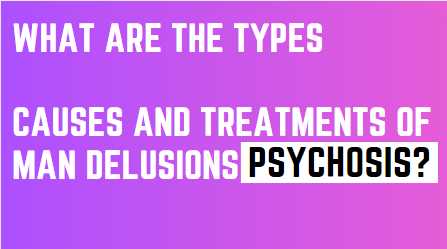Is Delusion an Emotion?
Delusion is often thought of as a mental disorder or a cognitive distortion, but is it an emotion? While it may not fit into traditional definitions of emotions, delusion can be considered a complex phenomenon that encompasses cognitive, affective, and behavioral components. In this article, we explore the nature of delusion as an emotion, its causes, and its implications for mental health.
Delusion as an Emotion: Understanding its Nature and Implications
- What is Delusion? Delusion is a belief that is not based on reality or evidence but is maintained despite overwhelming evidence to the contrary. It can be seen as a type of cognitive error, in which individuals hold onto irrational or unfounded beliefs. However, delusion is not simply a matter of having incorrect beliefs; it also involves emotional and behavioral components that make it difficult to change these beliefs.
- The Affective Component of Delusion Delusion is often accompanied by strong emotional reactions, such as fear, anger, or anxiety. These emotions can fuel the maintenance of delusional beliefs, as they provide a sense of validation and reinforcement. For example, a person with delusions of persecution may feel intense fear and paranoia, which can further cement their belief that others are out to harm them.
- Causes of Delusion Delusion can arise from a variety of factors, including mental illness, substance abuse, and physical illness. Psychotic disorders such as schizophrenia are a common cause of delusion, as are mood disorders such as bipolar disorder. Substance-induced delusion can occur as a result of drug use, while delirium can be caused by physical illness or injury.
- Implications for Mental Health Delusion can have a significant impact on mental health, leading to impaired functioning, social isolation, and reduced quality of life. It can also be a symptom of underlying mental health conditions, making it important to identify and address delusional beliefs in treatment. Psychotherapy, medication, and other interventions can be effective in reducing the severity of delusion and improving overall mental health outcomes.
Conclusion:
While delusion is not traditionally thought of as an emotion, its affective and behavioral components make it a complex phenomenon that impacts mental health and well-being. Understanding the nature of delusion as an emotion can help clinicians and individuals affected by delusion to develop more effective treatment strategies and improve overall mental health outcomes.






